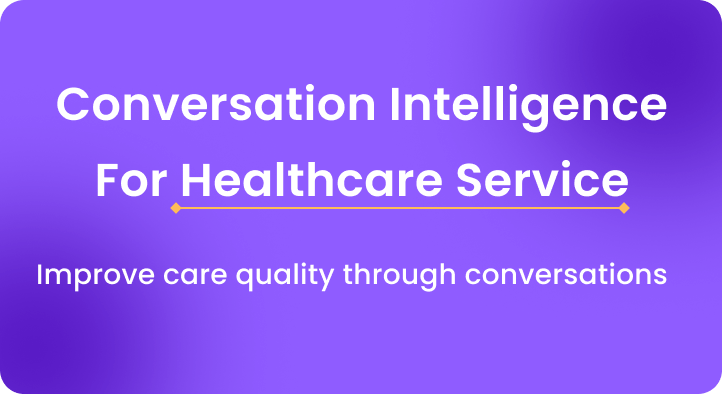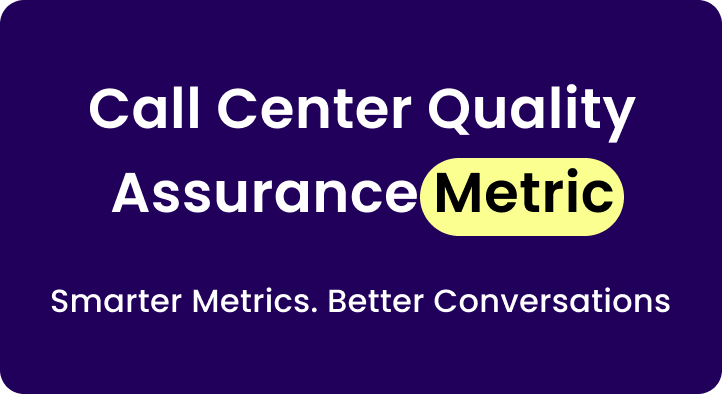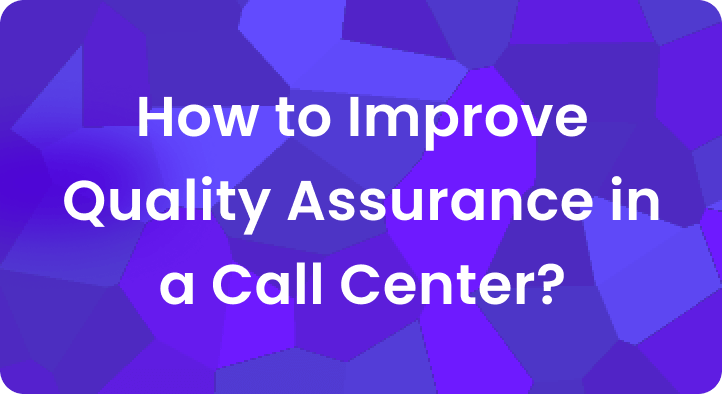Agent coaching is the heartbeat of every high-performing call center. But if you’re still relying on manual call reviews, spreadsheet tracking, or generic feedback sessions, you’re not coaching. You’re reacting.
Modern contact centers have moved beyond random audits and one-size-fits-all advice.
They’re using AI to identify exactly where agents need help, and then deliver coaching that’s timely, personalized, and consistent.
This isn’t about automating coaching. It’s about using AI to make coaching better for your agents, your managers, and your customers.
Let’s break down the key benefits of AI-driven coaching and what it actually looks like in a real call center environment.
1. You Know Which Agents to Coach and Why
In most centers, coaching starts with a hunch.
A supervisor overhears a rough call. A QA analyst flags a mistake. A CSAT score dips. But with dozens of agents and thousands of calls, you can’t rely on guesswork.
AI solves this by reviewing every call, chat, and email. It automatically highlights coaching moments based on behavior, not just outcomes. For example:
- Agents who interrupt customers often
- Reps who miss verification steps
- Calls with long holds or rushed closings
- Low sentiment scores throughout the week
Instead of waiting for problems to surface, you see exactly where help is needed and which agents need it most.
This helps team leads focus their energy where it has real impact.
2. Coaching Is Based on Patterns, Not Just One-Off Calls
A single bad call doesn’t mean an agent is underperforming. But when the same issue shows up across ten calls in a week, that’s a clear coaching opportunity.
AI tracks behavior over time. You can view trends by agent, by topic, or by call type. For example:
- An agent may struggle during billing complaints
- Another may fumble when a customer gets frustrated
- Someone may improve quickly after coaching, or keep repeating the same mistake
This lets you tailor each coaching session to what is actually happening, not just what a few isolated calls suggest.
It also builds credibility. Agents are more open when feedback is based on real patterns, not isolated examples.
3. Feedback Happens Faster While the Call Is Still Fresh
Feedback loses power the longer you wait to give it.
In many call centers, feedback is delivered weekly or even later. By then, the agent has taken hundreds of calls and can’t remember the one that’s being discussed.
AI-driven systems flag coaching moments soon after they happen. Some platforms even send supervisors instant alerts.
This allows:
- Same-day feedback for agents
- Coaching while the memory of the call is still fresh
- Corrections before the behavior becomes a habit
Faster feedback means faster growth. It also helps agents feel supported instead of blindsided.
4. Every Coaching Session Is Personalized
Generic coaching is frustrating for agents and unproductive for managers.
Telling someone to be more polite or more confident doesn’t help unless it’s tied to a real moment in a real call.
AI gives managers specific coaching insights for each agent, such as:
- How often they interrupt
- Where they miss compliance steps
- How customers react to their tone
Instead of guessing, you can show the agent exactly what happened, when it happened, and how to improve.
This creates focused, practical coaching sessions that agents can act on right away.
5. It Frees Up Supervisors to Actually Coach
Supervisors want to coach more, but they’re stuck doing busy work.
They spend time reviewing calls, writing notes, and building cases before they even get to talk to the agent.
AI takes care of all that. It:
- Scores calls automatically
- Tags specific behaviors
- Tracks coaching history and outcomes
Supervisors can walk into sessions ready to coach, with all the data in hand. This leads to more consistent coaching across the board, regardless of who is delivering it.
When coaching becomes easier to deliver, it becomes part of the daily rhythm instead of a last-minute task.
6. Agents Trust the Process More
One major obstacle in coaching is agent resistance.
They may not agree with the feedback. They may think they’re being unfairly targeted. Or they may not see the value in another sit-down session.
AI reduces friction in a few key ways:
- Every agent is evaluated using the same standards
- Coaching is based on complete data, not cherry-picked calls
- Feedback is tied to measurable behaviors, not personal opinions
The result is more buy-in, fewer arguments, and coaching that feels like a partnership instead of punishment.
7. You Can Measure Coaching Impact Over Time
Without visibility into progress, coaching turns into guesswork.
AI tracks performance after coaching sessions. You can clearly see:
- Has the agent’s sentiment score improved
- Are compliance misses going down
- Are hold times and escalations decreasing
- Is customer satisfaction trending upward
This data helps you know what’s working and what needs a different approach.
It also gives you a way to reward progress, not just perfect scores. That recognition builds confidence and motivates agents to keep improving.
8. It Supports Agents Without Hovering Over Them
Agents want feedback, not micromanagement.
With AI, you don’t need to monitor calls live or check in constantly. The system quietly tracks performance in the background and surfaces coaching needs without disrupting the agent.
This means:
- Less pressure on the floor
- Fewer interruptions
- More focus for everyone
For top performers, it means more autonomy. For new hires, it means tighter feedback loops. Either way, it creates a better coaching environment.
Conclusion
AI-driven coaching is not about replacing people. It’s about giving managers better visibility, giving agents fairer feedback, and building a system that works at scale.
It brings structure, speed, and personalization to a process that’s often inconsistent and overloaded.
If coaching in your center still feels reactive or scattered, AI helps you turn it into something stronger. A system that identifies what matters, delivers feedback quickly, and helps people get better faster.
Because when agents grow, your entire call center wins.



